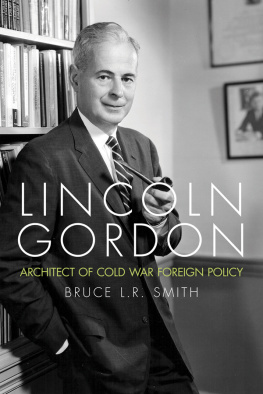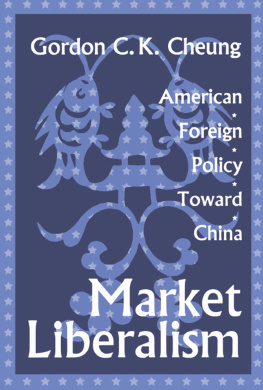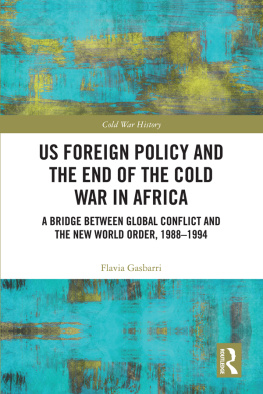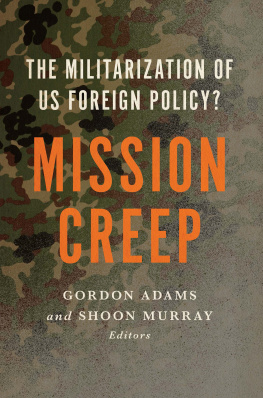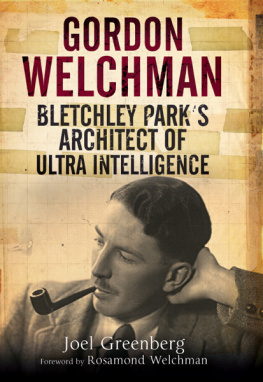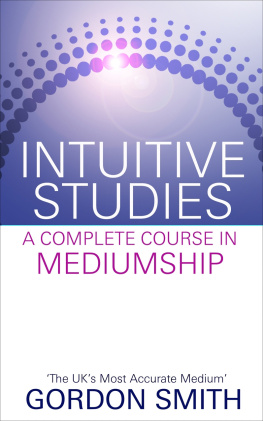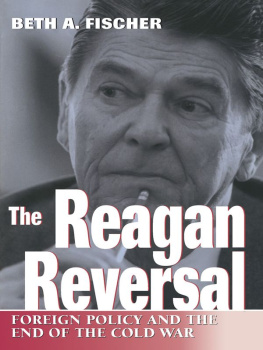Lincoln Gordon
| ADST-DACOR DIPLOMATS AND DIPLOMACY SERIES
Series Editor: MARGERY BOICHEL THOMPSON |
Since 1776, extraordinary men and women have represented the United States abroad under widely varying circumstances. What they did and how and why they did it remain little known to their compatriots. In 1995, the Association for Diplomatic Studies and Training (ADST) and DACOR, an organization of foreign affairs professionals, created the Diplomats and Diplomacy book series to increase public knowledge and appreciation of the professionalism of American diplomats and their involvement in world history. This 58th volume in the series, Bruce L. R. Smiths biography of Lincoln Gordon, presents an insightful account of the many contributions of an influential player in key events during and after World War II in Europe and Latin America and the people who helped shape these events.
SELECTED TITLES IN THE SERIES
PETER BRIDGES, Donn Piatt: Gadfly of the Gilded Age
GORDON S. BROWN, Toussaints Clause: The Founding Fathers and the Haitian Revolution
J. F. BROWN, Radio Free Europe: An Insiders View
HERMAN J. COHEN, Intervening in Africa: Superpower Peacemaking in a Troubled Continent
CHARLES T. CROSS, Born a Foreigner: A Memoir of the American Presence in Asia
HERMANN F. EILTS, Early American Diplomacy in the Near and Far East: The Diplomatic and Personal History of Edmund Q. Roberts 17831836
BRANDON GROVE, Behind Embassy Walls: The Life and Times of an American Diplomat
KEMPTON JENKINS, Cold War Saga
DENNIS JETT, American Ambassadors: The Past, Present, and Future of Americas Diplomats
BO LIDEGAARD, Defiant Diplomacy: Henrik Kauffmann, Denmark, and the United States in World War II and the Cold War 19391958
JANE C. LOEFFLER, The Architecture of Diplomacy: Building Americas Embassies
ROBERT H. MILLER, Vietnam and Beyond: A Diplomats Cold War Education
DAVID D. NEWSOM, Witness to a Changing World
RICHARD B. PARKER, Memoirs of a Foreign Service Arabist
NICHOLAS PLATT, China Boys: How U.S. Relations with the PRC Began and Grew
LAURENCE POPE, Franois de Callires: A Political Life
HOWARD B. SCHAFFER, Ellsworth Bunker: Global Troubleshooter, Vietnam Hawk
NANCY BERNKOPF TUCKER, ed., China Confidential: American Diplomats and Sino-American Relations 19451996
For a complete list of series titles, visit adst.org/publications .
LINCOLN
GORDON
ARCHITECT OF COLD WAR
FOREIGN POLICY
BRUCE L. R. SMITH
AN ADST-DACOR
DIPLOMATS AND DIPLOMACY BOOK
Due to variations in the technical specifications of different electronic reading devices, some elements of this ebook may not appear as they do in the print edition. Readers are encouraged to experiment with user settings for optimum results.
Copyright 2015 by Bruce L. R. Smith
The University Press of Kentucky
Scholarly publisher for the Commonwealth,
serving Bellarmine University, Berea College, Centre College of Kentucky, Eastern Kentucky University, The Filson Historical Society, Georgetown College, Kentucky Historical Society, Kentucky State University, Morehead State University, Murray State University, Northern Kentucky University, Transylvania University, University of Kentucky, University of Louisville, and Western Kentucky University.
All rights reserved.
Editorial and Sales Offices: The University Press of Kentucky
663 South Limestone Street, Lexington, Kentucky 40508-4008
www.kentuckypress.com
Library of Congress Cataloging-in-Publication Data
Smith, Bruce L. R.
Lincoln Gordon : architect of Cold War foreign policy / Bruce L. R. Smith.
pages cm. (ADST-DACOR diplomats and diplomacy series) (Studies in conflict, diplomacy and peace)
Includes bibliographical references and index.
ISBN 978-0-8131-5655-2 (hardcover : alk. paper) ISBN 978-0-8131-6120-4 (pdf) ISBN 978-0-8131-6121-1 (epub)
1. Gordon, Lincoln. 2. DiplomatsUnited StatesBiography. 3. United StatesOfficials and employeesBiography. 4. United StatesForeign relations20th century. 5. Johns Hopkins UniversityPresidentsBiography. 6. College teachersUnited StatesBiography. 7. AmbassadorsBrazilBiography. 8. AmbassadorsUnited StatesBiography. 9. Cold War. I. Title.
E748.G687S65 2015
327.2092dc23
[B]
2015003605
This book is printed on acid-free paper meeting the requirements of the American National Standard for Permanence in Paper for Printed Library Materials.

Manufactured in the United States of America.
| Member of the Association of
American University Presses |
Contents
Preface
Every biography, like every life, has its unique features and challenges. Writing this biography was for me a trip down memory lane. I came to Harvard about a quarter of a century after Lincoln did, and we overlapped for several years. I studied with and knew many of the same people who taught him and were later his friends and colleagues. I lived on New Yorks West Side, not far from his boyhood home on Riverside Drive. I, too, left teaching and settled in Washington, DC, after a stint in public service and found a congenial home at the Brookings Institution, where I first met Lincoln Gordon. He was a most congenial colleague whom I liked and admired, but it never occurred to me during his lifetime that one day I might write his biography. The idea of doing so first occurred to me in March 2010, when I attended a memorial service for him at the Cosmos Club in Washington. At this service his four children, as well as several grandchildren, gave moving tributes, a family friend offered a fond remembrance, and a great-grandson played the violin. Something in his life spoke to me, and I conceived the idea of undertaking this biography.
Since I only thought of this project after his death, I did not attempt or aspire to be a Boswell to his Johnson. I might have learned more about certain aspects of his life and his career had I been self-consciously interviewing him or recording my impressions during the time I knew him. I think I understood him, though, and what made him tick. The triumvirate of values that moved himfamily, learning, and public servicewas close to my heart. I thought that the story needed telling of this man who had served his country so long and so well in so many ways with so little reward or public recognition. But of course whether I have succeeded as a biographer in telling this story is for my readers and not for me to say.
Introduction
The eastern establishment that shaped the postWorld War II order was made up of a circle of Wise Men (such as Averell Harriman, Dean Acheson, John McCloy, Robert Lovett, George Kennan, Charles Bohlen, and others) who have deservedly attracted the attention of biographers and historians. Some of these well-known Americans told their own stories in eloquent memoirs. But these individuals had a supporting cast of less well-known wise men and some women behind them. This supporting casts work made possible and sometimes even outshone the achievements of the better-known figures who have gotten most of the credit. The Wise





